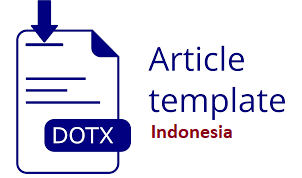Group Cohesiveness Terhadap Senjangan Anggaran dengan Religiusitas Sebagai Moderasi
Keywords:
Group Cohesiveness, Islamic Religiosity, Budgetary SlackAbstract
This research aims to test the influence of the independent variable group cohesiveness which is influenced by the moderating variable Islamic religiosity as local culture on the dependent variable budgetary slack through hypothesis testing. The population used in this research are officials and employees involved in preparing budgets in all districts within the District/City Government of Aceh. The sampling method used in this research was a random sampling technique. This research uses the Partial Least Square (PLS) method. The findings show that group cohesiveness has a significant influence on budgetary slack. The results of data analysis and hypothesis testing in this study show that there is a negative and significant influence of Islamic religiosity on budgetary slack. Also the test results show that Islamic religiosity has a significant and negative moderating effect on the relationship between the group cohesiveness variable and budgetary slack.
References
Ariffianto, M., & Adhariani, d. (2018). Budget Surplus Determinants In Indonesian Regional Government Budgets From A Budgetary Slack Behavior Point Of View. International Journal Of Economics And Management, 12, 17–29.
Chin, W. (1998). Commentary: Issues And Opinions On Structural Equation Modeling. Mis Quarterly, 2 (1), Vii-Xvi (10 pages). https://www.jstor.org/stable/249674 .
Chong, V. & Ferdiansah, I. (2011). The Effect Of Trust-In-Superior And Truthfulness On Budgetary Slack: An Experimental Investigation. Advances In Management Accounting, 19, 55–73. https://doi.org/10.1108/s1474-7871(2011)0000019009 .
Fadhli, A., & Indriani, M. (2019). The Influence Of Budget Emphasis, Budget Participation, Job Involvement, And Locus Of Control On Budget Gaps In Aceh Provincial Government And Services. Scientific Journal Of Accounting Economics Students (JIMEKA), 4 (1), 13–22. Https://doi.org/10.24815/jimeka.v4i1.6672 .
Ghozali, I., & Ratmono, D. (2017). Multivariate Analysis And Econometrics (2nd ed.). Faculty of Economics and Business, Diponegoro University.
Islamic, I. N., & Nahartyo, E. (2019b). Do Leadership Styles Moderate The Relationship Of Organizational Commitment And Budgetary Slack? An Experimental Approach. Journal Of Indonesian Economy And Business (JIEB), 34 (2), 149–168. https://doi.org/10.22146/jieb.32285 .
Jalaluddin, J., Juanda, J., & Utami, L. (2020). Information Asymmetry, Group Cohesiveness, And Budgetary Slack: A Moderating Effect Of Budgetary Participation. Journal Of Accounting Research, Organizations And Economics, 3 (1), 39–51. https://doi.org/10.24815/jaroe.v3i1.15931 .
Kahar, S. HA, Rohman, A., & Chariri, A. (2016). Participative Budgeting, Budgetary Slack And Job Satisfaction In The Public Sector. Journal Of Applied Business Research (JABR), 32 (6), 663–1674. https://doi.org/10.19030/jabr.v32i6.9814.
Rahayu, L., Anwar, S., Safitri, W. D., & Akrama, R. (2020). Application Of Structural Model Equations In Identifying Variables That Can Affect The Nutritional Status Of Adolescents In Aceh Besar District. Journal Of Data Analysis, 2 (2), 88–95. Https://doi.org/10.24815/jda.v2i2.16508 .
Sandalgaard, N. (2012). Uncertainty And Budgets: An Empirical Investigation. Baltic Journal Of Management, 7 (4), 397–415. https://doi.org/10.1108/17465261211272157 .
Wech, B. A., Mossholder, K. W., Steel, R. P., & Bennett, N. (1998). Does Work Group Cohesiveness Affect Individuals' Performance And Organizational Commitment?: A Cross-Level Examination. 29 (4), 472–494. https://doi.org/10.1177/1046496498294004 .








